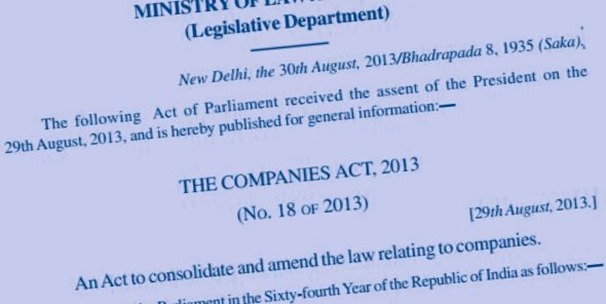Draconian Laws Removed from Companies Act 2013. Lok Sabha Passes Amendment Bill
Lok Sabha has cleared the Companies Act (Amendment) 2013 bill, thereby removing some of the draconian and totally unreasonable laws (Like Jail time if Returns not filed) which were hurting the business sentiments on the nation.

While comparing the previous laws enacted under Companies Act 2013, Arun Jaitley, Corporate Affairs Minister said, “..(previously) A terrorist can get bail, but a company official cannot“, adding, “Are we trying to induce or scare investors,”.
He stated that all “oppressive provisions” have been removed from the Companies Act 2013, as “nobody will come here to set up business if such an environment persists”.
At the same time strict regulations have been introduced to punish those businesses which are illegally raising money from the public.
There are mainly 14 amendments which have been passed by the Lok Sabha, which covers broadly four areas:
- Facilitating ease of doing business in India,
- Correction of all draft errors,
- Fixing oversight and
- Removal of all clauses which were harmful for businesses and entrepreneurs.
Some of the changes which have been introduced via amendments in the Companies Act 2013 include:
Contents [hide]
Confidentiality of Board Meetings restored
The new amendments prohibit public disclosure of decisions made inside a Board meeting. Arun Jaitley shared that nowhere in the world such rules exists, which can literally crack open the secret ingredients of successful business and make it weak. He said, “A company deciding in its board on its next model, a new product trademark or the funding mechanism would not like such matters to be known to competitors,”
A special section 76A Introduced
76A has been introduced in the bill, which empowers the Government to slap fine upto Rs 10 crore on defaulting companies which raise money from the public and then disappear. In the wake of recent scams such as Saradha Finance in West Bengal and Sahara, this new regulation was indeed required. In any case, the new law states that the fine would not be less than Rs 1 crore in any case. The new amendment states: “in addition to the payment of the amount of deposit or part thereof and the interest due”.
Defaulting Company Laws
Officers and employees of the defaulting company, who encouraged and promoted financial scams can now face fine upto Rs 2 crore, with a minimum threshold of Rs 25 lakh and/or prison upto 7 years. And the Director and Founder of such frauds would be fined under Section 447 of the Act, and can be prisoned upto 10 years along with a fine “which shall not be less than the amount involved in the fraud, but which may extend to three times the amount involved in the fraud”.
Approvals made easy
Earlier, 75% of the minority shareholders were required to approve a decision related to a company, which has now been reduced to 50%. This move will save time and resources for getting the desired approvals. Another major change is that from now, there would no requirement of stakeholders approval in case of related party transactions less than Rs 100 crore or 10% of the net worth of the company. Earlier approval was required for any transaction worth Rs 10 crore or more.
In case of transactions between holding companies and wholly-owned subsidiaries, non-related shareholder’s approval was required, which has been removed in the new draft.
There were several drafting errors in the original bill, such as unclaimed shares and dividend. Unclaimed dividend for 7 years is automatically transferred into a investor-protection fund but unclaimed shares does not. From now on, all unclaimed financial assets will be transferred to the investor-protection fund.
Paid Capital Requirement Removed
Earlier, paid up capital of Rs 1 lakh was required for a new private company and Rs 5 lakh for private company, which has been now removed.
Federation of Indian Chambers of Commerce and Industry (FICCI) has applauded the amendments introduced, and have issued a statement: “In the interest of a facilitative regulatory climate in the country, FICCIi hopes that the Bill would attain quick passage in the Rajya Sabha as well.”

[…] year, Lok Sabha passed an amendment, which removed some of the draconian regulations from Companies Act 2013; such as legal action against company directors and maintaining confidentiality of Board […]